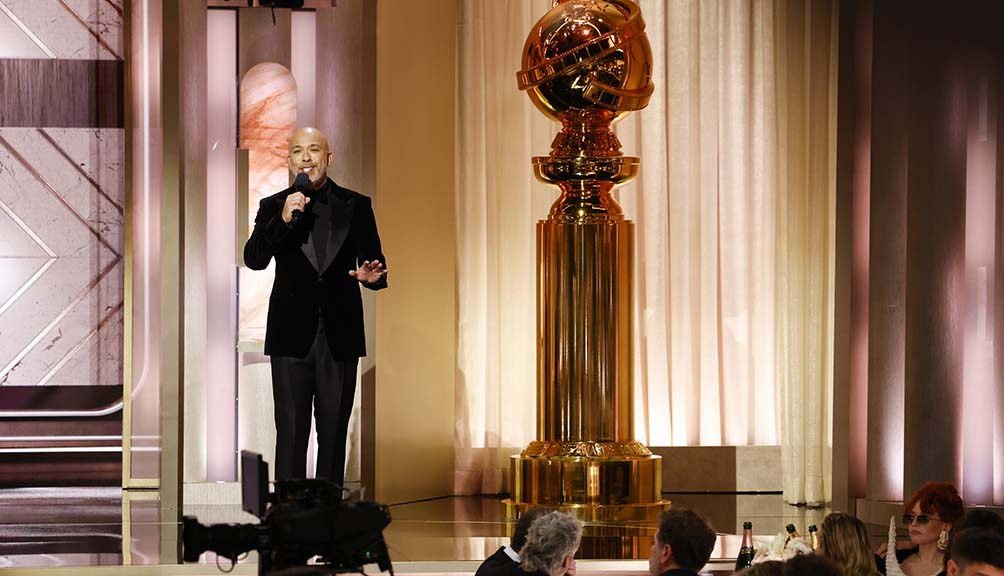
Social media lit up Jo Koy with devastating attacks about his hosting duties at the Golden Globe Awards on January 7.
But something funny happened on the way to the dustbin of Golden Globes history. Ratings had a dead-cat bounce, rising to 9.4 million viewers — a 50% jump from 2023’s record low of 6.3 million viewers.

Whether more people tuned in from social media’s lambasting of Koy’s unfortunate performance or whether they were drawn to the quality of the nominees (Barbie, Oppenheimer, Killers of the Flower Moon), and attendees (Taylor Swift, Greta Gerwig, Leonardo DiCaprio, Martin Scorsese, Robert DeNiro), is difficult to determine.
Linear TV is still quite a powerful advertising platform for live sports and tentpole events such as awards shows. The reasons are simple: ratings, cultural relevance via social media, and the ripple effect for days or even months after the fact in the form of user-generated shareable content (tweets, posts, hashtags and memes).
Each year, Q1 is brings the linear-TV ad trifecta: the Grammy Awards (February 4), Super Bowl LVIII (February 11), and the Oscars (March 10). Perhaps the Golden Globes should be included to make Q1 a “quadfecta?”
In 2020, the Grammy Awards drew about 19 million viewers, which fell to under 10 million in 2021 and 2022 before rising in 2023 to 12.5 million. And the bored Ben Affleck meme is still memorable a year later.
The Super Bowl never fails to disappoint as a ratings draw with roughly 100 million viewers each year. While ratings for the other two shows fluctuate wildly, all are amplified by social media commentary.
When our clients ran TV Super Bowl commercials, they experienced increased engagement and a significantly higher response rate on their websites and apps.
Despite the high out-of-pocket cost, the substantial volume of web traffic more than offset the cost, resulting in a lower cost-per-visit for the Super Bowl. The down-funnel impact on new customers and conversions from the Super Bowl was similarly strong and efficient, with the greatest impact realized within the first three days and measurable for approximately 25 days post-spot.
Pregame spots have proven to generate a strong response for numerous brands. Placing ads in tentpole programming elevates awareness among consumers and adds legitimacy and credibility. This is important because there has been a steady decrease in ratings for primetime programming each year, showing a decline of 13.83% from 2022 to 2023.
Clever creative in the right placement drives conversations that happen outside of live broadcasts; what used to be called the “water-cooler” effect — next-day conversations in the workplace — can become immortal online.
The “Breaking Bad” Super Bowl spot for PopCorners last year was widely shared and discussed on social media, even though it aired only once on TV. However many millions the brand spent to run the 60-second spot helped to ensure it reached a substantial audience beyond the telecast and generated a lot of positive buzz for the brand.
Super Bowl LVII in 2023 drew the most viewers in the past five years with 115 million in total, up 16% compared to 2019. Naturally, eyeballs vary depending on the quarter in which an ad appears and whether the game is lopsided.
Like the Grammys, Academy Awards viewership has declined significantly, down 37% in 2023 versus 2019. Yet the Oscars broadcast was one of only seven non-NFL sports programs in the top 100 most-watched TV broadcasts of 2023, making it a still-valuable buy. It remains to be seen whether the current beef between New York Jets quarterback Aaron Rodgers and scheduled Oscars host Jimmy Kimmel has legs that can stretch to March.
To maximize impact, brands might consider leveraging strategic partnerships with popular platforms such as YouTube AdBlitz to amplify brand creative and achieve even more mass reach. The coupling generated five times the views of the Super Bowl game itself and provided opportunities to reach incremental consumers, aged 18-49 who didn’t see an ad on TV. The most successful YouTube AdBlitz ads during the 2023 Super Bowl garnered anywhere from 11 million to a staggering 140 million views, showcasing the immense reach of the platform.
Considering the magnitude of pop-culture influence from a tentpole linear TV event through shareable content and the data derived from sentiments, conversation and interactivity, buying ads on these shows is practically a guarantee for return on ad spend.
Think of it this way: Despite dismal material and the near-universal panning of his performance, the Taylor Swift death-stare meme generated from one of Koy’s jokes about the singer is worth its viralness in gold. At least now everyone knows who he is.







